Review by Jennifer Mustoe, Front Row Reviewers, CEO
On a recent trip to London, I stepped off the popular West End path to attend The Lightest Element, a strikingly beautiful, profound, and important play written by Stella Feehily. Being produced at the elegant Hampstead Theater in South Hampstead, in the London Borough of Camden, The Lightest Element mustn’t be missed.
The Lightest Element tells the story of the famous astronomer Cecilia Payne-Gaposchkin, well-known in her field of study. I know little about astronomy, and it is not necessary to know much to enjoy The Lightest Element, because it is the story of a strong, brilliant, caring woman who happened to be one of the greatest minds in the sciences at that time. I’d never heard of her before attending the play, and I daresay most of my readers aren’t familiar with her name or her story either.
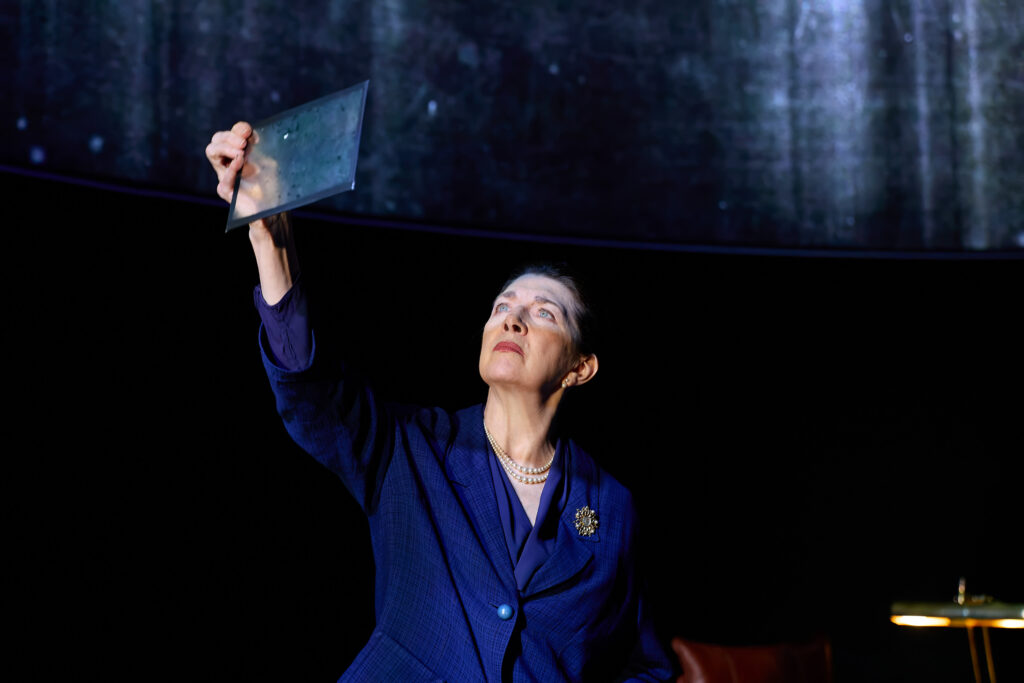
A little background about this remarkable woman. According the program, at the age of 19, Payne was awarded an all-expenses paid scholarship to Newnham College, Cambridge to study botany, physics, and chemistry. She completed her studies but was not awarded a degree. Because she was female. In 1923, she applied–and was granted–to study astronomy at the Harvard College Observatory in Cambridge, MA. In 1925, Payne received a PhD from Radcliffe College because, again, Cambridge did not award doctoral degrees to women.
At this point, of course, we recognize a trend. A brilliant woman, an accomplished woman was being lauded for her work, but unable to receive the appropriate degrees because of her gender. This sexist theme continues throughout the play, and it is one of the strong messages I took away with me, and even now, weeks after I attended The Lightest Element, I can’t forget it, nor would I want to.
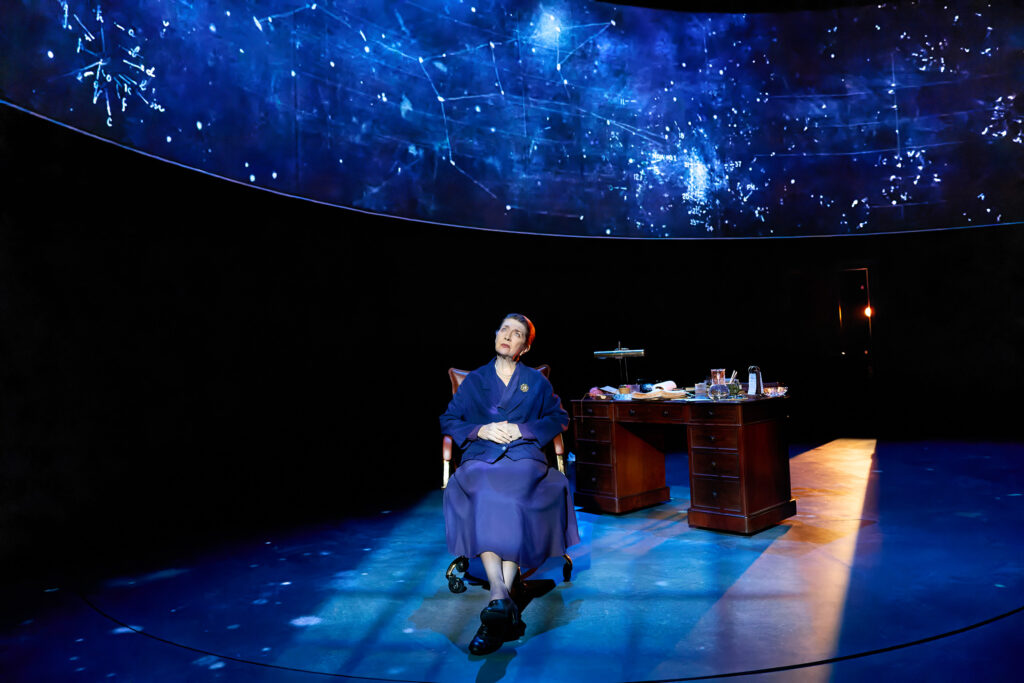
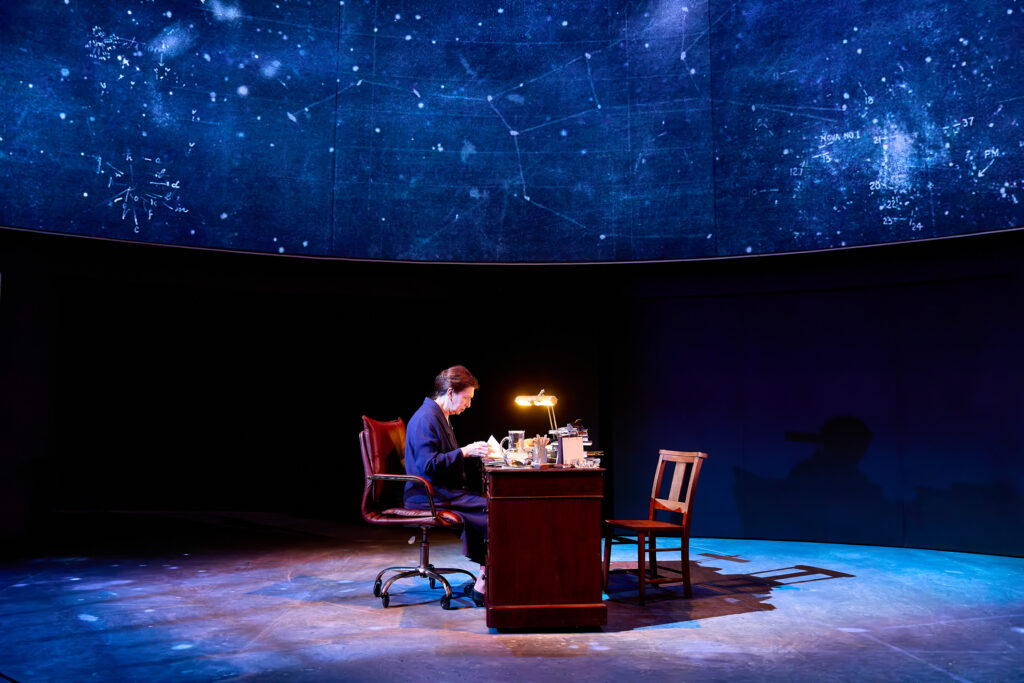
The opening scene is indicative of where we’re heading in The Lightest Element. Cecilia Payne, played with passion and precision by Maureen Beattie, is meeting with Professor Varney (Steffan Cennydd) and as he is praising her for her work (which he later uses as his own), we are shown the path and the point of this piece. This scene hit me in the gut. So striking was this image and Beattie plays this with perfection. She stands tall as Varney enters the room, but within minutes bends her shoulders and obediently scoots to get the tea. Of course, the brilliant Payne won my praise and allegiance as a woman and Beattie in her specific, connected, affecting performance in this role.
The play progresses and gains speed and interest as a variety of characters are introduced and the double storyline of science and feminism build the fabric of the story. Rina Mahoney plays Rona Stewart, Payne’s assistant and friend. As Stewart, Mahoney exudes a friendly support and delightful spunk. A likeable character and we may wish we could have such a loyal confidant. Professor Whipple also plays a large part in the show, and Simon Chandler is affecting and believable–yet another man in Payne’s male-dominated career.
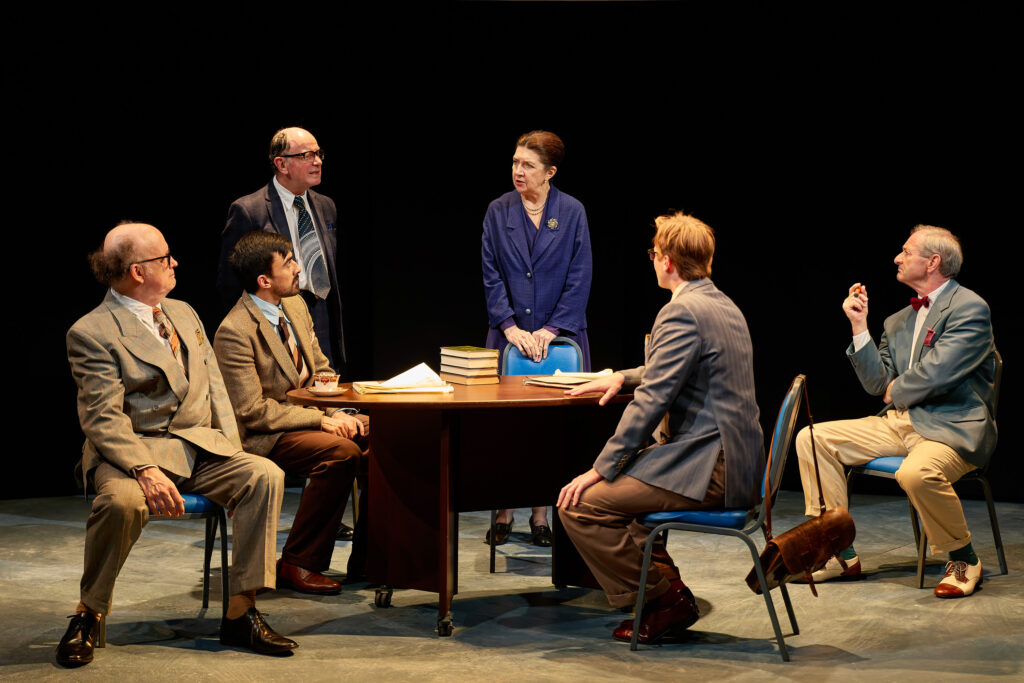
Though one of the storylines in the play is highlighted, that of Payne’s marriage to Russian Sergie Gaposchkin, and that he and his wife joined the Communist party to fight Russian Fascism, this was secondary in my viewing and appreciating The Lightest Element. The Red Scare was real and presented the possibility of Payne losing everything, and newsman Budd Phipps (Hari Kang) means to expose her. Phipps attempts to coerce his girlfriend Sally Kane (Annie Kingsnorth) with sexual attention/aggression and threatens to reveal that she bore a child out of wedlock. His manipulation and her fear is yet another highlight (or is it lowlight?) of gender inequity coupled with the power this man, and too many like him, use to subjugate and control women. It was difficult to see Kang’s on point performance as he intimidated his “girlfriend.” Without giving too much away, hooray for Kingsnorth as she powerfully performs Kane’s redemption. Did I stand and applaud her? No. Did I want to? Yes, so very much yes.
Hence, the Communist/Red Scare theme was ancillary to the male versus female theme that so struck me.
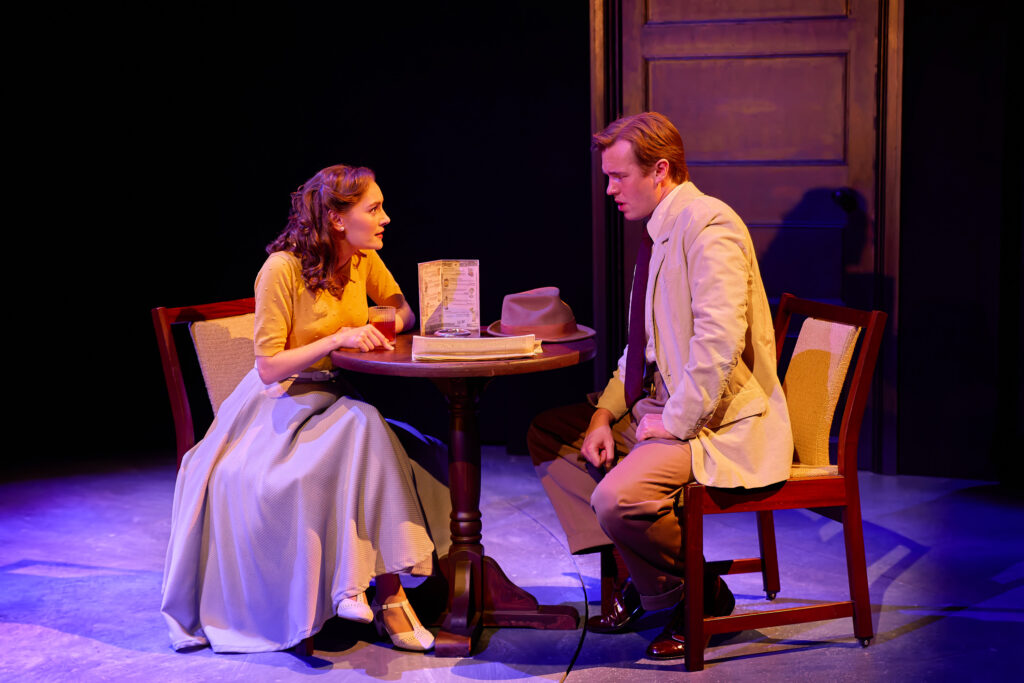
The story ends well, as Cecilia Payne-Gaposchkin’s life progresses with success. She was elected to the American Philosophical Society in 1936 and called by some “the most prominent woman astronomer of all time.” Mentioned in passing is that she and her husband had three children, she played the violin tremendously well, and spoke four languages, among other accomplishments. She became a teacher and educated young women to study sciences.
The creative team for The Lightest Element brings this production to startling perfection. Lighting Design by Johanna Town, Sound Design by Harry Blake, and Video Designer Zakk Hein present a beautiful and remarkable experience for me. The stage is surrounded with light, sound, and video that brought me into the story in a rather unbelievable way–I was immersed.
Director Alice Hamilton brings the story of a remarkable woman directly to our minds and warmly to our hearts. She blends each storyline beautifully with her talented cast in such a way that I was wholly spellbound.
Playwright Feehily has amassed many of the highlights and important information about Cecilia Payne-Gaposchkin and brings her to the stage with the precision of a great writer, but the care of a loving advocate. For more information about Feehily’s body of work, access this site.
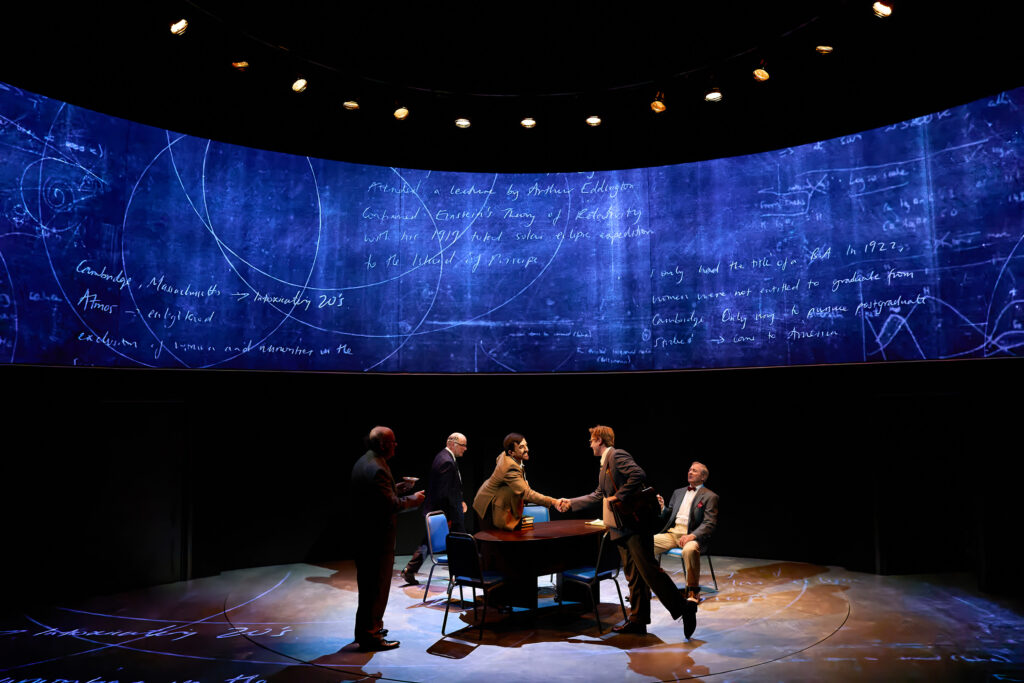
Finally, I will say there are many humorous moments in the play and I had a lot of laugh out loud moments. Maybe more than most audience members, to be honest. I am a laugh out loud person. Which I consider a good thing.
Though I realize this review is perhaps superfluous to our United States audience, I am writing this for two reasons:
If by chance you do get to London (or are in London now) before the end of the run, see this show.
I’m hoping that this American review can inspire a theater company here across the pond to produce The Lightest Element. It is an entertaining, electrifying production about an important, relevant topic.
The Lightest Element, by Stella Feehily, playing at Hampstead Theater, Eton Ave, London NW3 3EU, United Kingdom
The Lightest Element plays until 12 October, 2024. Showing every evening and matinees on Thursday and Saturday.
The Lightest Element trailer
Photo Credit: Mark Douet
For more information about Cecilia Payne-Gaposchkin, I accessed this site and recommend it for those who want to know more about this remarkable woman.
Note: The nearest stations to The Hampstead Theater are Swiss Cottage on the Jubilee line and Finchley Road on the Jubilee and Metropolitan lines.

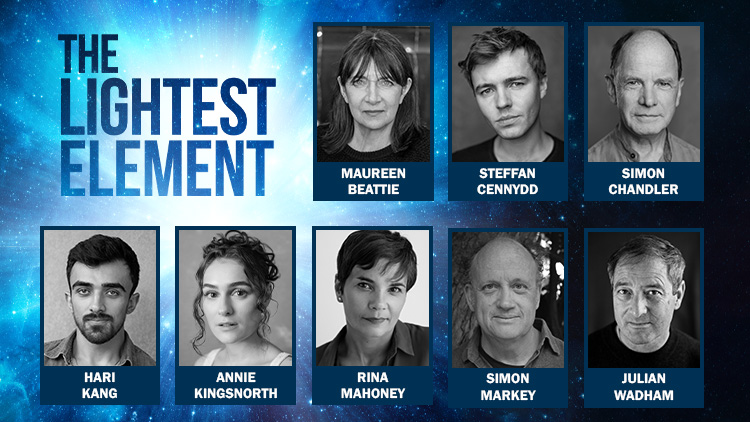
0 Comments